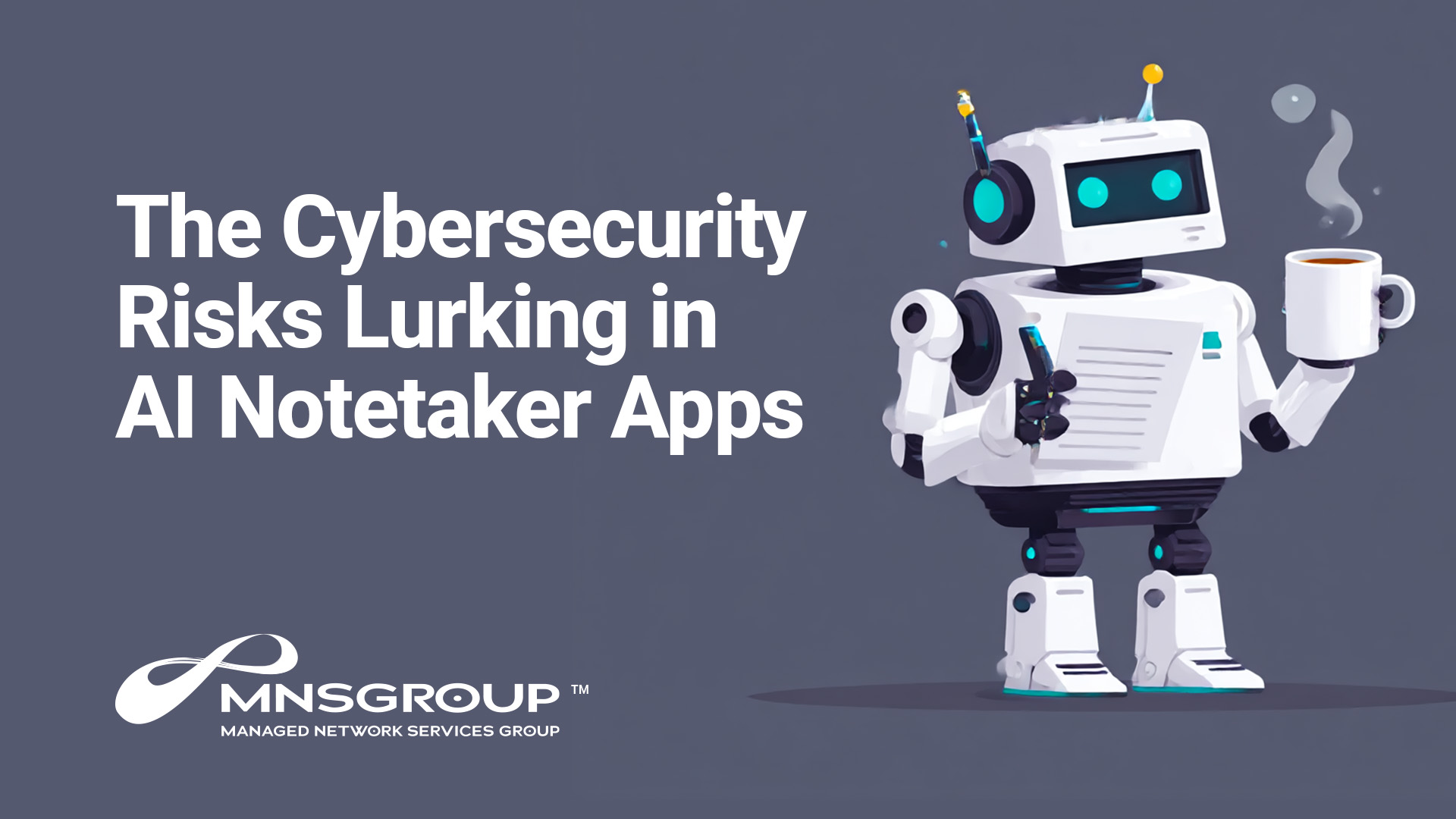The Cybersecurity Risks Lurking in AI Notetaker Apps

Among the most popular AI tools used by businesses today are note-taking apps. These digital assistants join your meetings, record conversations, and generate detailed notes or summaries. These tools save time and do a great job of remembering the things we forget to jot down, but they also introduce serious cybersecurity and privacy risks.
Who Owns Your Conversations?
AI notetakers are capturing every word spoken in a meeting. That includes confidential discussions about strategy, client data, financials, and even personal information. To process this content, most apps send recordings to cloud-based servers, often outside the organization’s control and, in some cases, outside the country.
This raises several critical questions: Who owns this data? Where is it stored? Who has access?
Even when vendors claim encryption and compliance with regulations, data ownership can be murky. For organizations bound by standards like CMMC, HIPAA, GDPR, or ISO 27001, transferring sensitive information to a third-party AI service may violate data-handling requirements. Once your meeting data leaves your secure environment, your ability to protect or delete it diminishes.
Unauthorized Integrations
One problem with AI notetakers is that employees often install these extensions without consulting IT. These tools can connect directly to Zoom, Teams, or Google Meet, often requesting access to audio, chat logs, and screen shares.
Each unapproved integration expands the organization’s attack surface. A compromised or malicious app could capture proprietary information, introduce malware, or leak sensitive data to unauthorized parties. Even well-intentioned tools may “anonymize” and repurpose meeting data to train their AI models, meaning your company’s confidential discussions could help improve someone else’s algorithm.
The risk isn’t theoretical. Threat actors increasingly target collaboration tools as entry points into corporate networks. AI notetakers, especially unvetted ones, represent a new and attractive attack vector.
Data Retention and Third-Party Vulnerabilities
Another overlooked danger lies in how long the data is stored. Many AI notetaker vendors retain recordings and transcripts indefinitely unless users manually delete them. Each saved transcript is a potential goldmine for attackers.
Recent breaches like those affecting MOVEit and Okta show how third-party vendors can become weak links in the security chain. If a notetaker service is compromised, attackers could access months of internal meeting notes, and client records.
Privacy and Consent
Another issue to consider here is consent. Recording meetings without explicit consent can create legal and ethical violations. In some states and countries, meeting participants must all agree before recording a conversation.
AI notetakers often bypass this requirement by automatically joining and logging conversations, placing the legal and ethical burden on the employee or company who invited the bot.
How to Mitigate the Risks
Organizations can still benefit from AI note-taking, but only with careful governance and controls. Here’s how to protect your data while leveraging the technology:
-
Implement an AI Governance Policy: Clearly define which tools are approved, what data they can process, and who may authorize use. Educate employees on data sensitivity and recording consent.
-
Limit Access Permissions: Avoid giving third-party bots blanket access to meetings or cloud drives. Restrict them to specific sessions where transcription is necessary.
- Empower Employees to Dismiss AI notetakers. Actively encourage employees to remove any unapproved or unnecessary AI notetakers from meetings. Ensure they know they have the authority to do so.
-
Use Private AI Solutions: For sensitive environments, consider on-premises or private AI transcription tools that never transmit data outside your network.
In today’s environment, data is both an asset and a liability. Companies that treat AI-powered tools responsibly, protecting every conversation as if it were a classified document, will not only stay compliant but also preserve the trust of their clients and employees.
